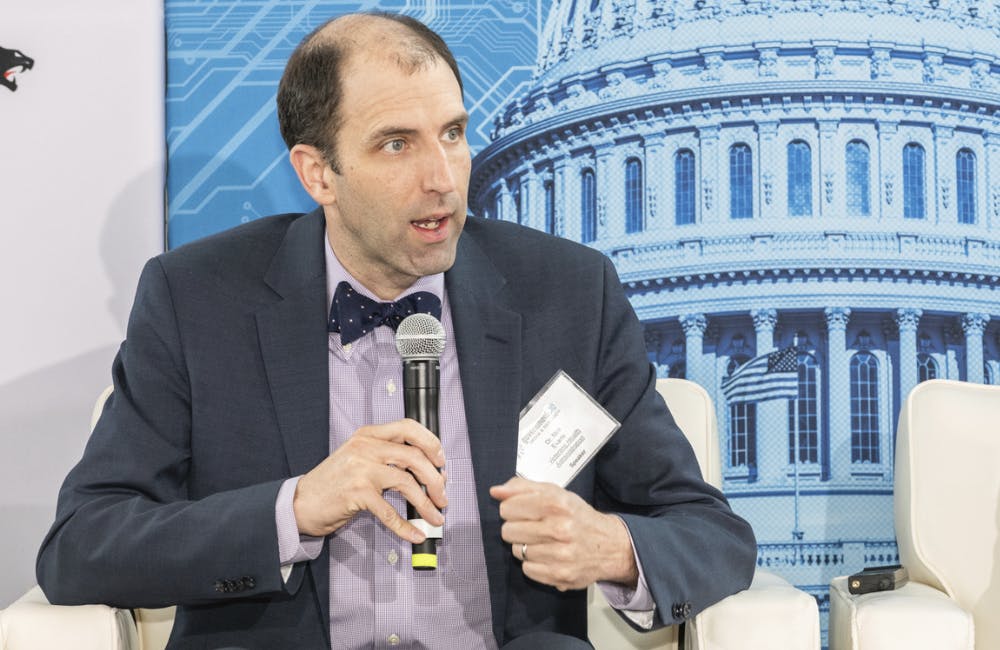ONC Eyes Empowering Patients With Record Access in 2022
National Coordinator for Health IT Micky Tripathi notes next year will see pay off for recent strides in data interoperability.

The Office of the National Coordinator for Health IT (ONC) is taking steps to empower patients to better access their health records electronically in the coming year after establishing the groundwork to create standards and interoperability across the health IT space.
At the center of many of these efforts is in the formation of standards-based application programming interfaces (APIs), information-sharing, interoperability requirements and other standards that ONC has established in response to the 2016 21st Century Cures Act.
Since then, ONC has been laying the regulation groundwork to make electronic health records more usable and accessible to patients. Now that the foundation is set, with steps like the Cures Act Final Rule and the information-blocking rule in place, National Coordinator for Health IT Micky Tripathi shared that patient can start to see the implementation of ONC’s requirements more clearly in the year ahead.
“The dust is kind of settled on the laying of that foundation that we built,” Tripathi said during GovernmentCIO Media & Research’s EHR Summit. “How do we have patients have access to their information to be more central part of care and to be active participants in their care? How do we have the opportunity to be able to have higher level analytics to be able to have more access to better research so that we can have better solutions for patients at the end of the day?”
Tripathi highlighted that recent steps like ONC’s requirement that EHR system providers make electronic information available to patients through standardized mechanisms was key to getting to where EHRs are today. Fast Healthcare Interoperability Resources (FHIR) API standards have also played an important role, especially as ONC set a new API standard deadline for EHR vendors by the end of 2022.
“By the end of 2022, certified EHR vendors are required to make available an API based on a particular technical standard, an implementation guide that ONC has pointed to, and what that will allow is the market for patient-facing apps to be able to develop faster and better than it is today,” Tripathi said.
In 2022, ONC will be more strongly enforcing the U.S. Core Data for Interoperability (USCDI), a standardized set of health data classes and elements for national interoperable health information exchange. This, Tripathi added, will enable common components of patients’ health record data to appear across various applications and systems for smoother data portability.
Beyond the requirements of the 21st Century Cures Act, ONC has also been expanding on recent effort to expand health equity and public health data interoperability as health disparities and COVID-19 public health obstacles have become more front and center for the federal government.
To address health inequities, Tripathi said that equity needs to be a part of the core way that developers design health systems because it will inform the way providers handle and use data, as well as provide care for various individuals.
“ONC requires that certified EHR vendors support the CDC dataset for race, ethnicity, language capture,” Tripathi said. “It’s very hard for us to make progress in equity if we actually have no way of measuring where health inequities are turning into health care, disparate treatment, disparate access and different outcomes, so that’s the first part — how do we get better adoption of the standards that are required in EHR systems today already to be able to capture that race, ethnicity language in more consistent ways so that we’re able to have at least the ability to identify where there are issues?”
ONC will start to require USCDI to include sexual orientation and gender identity data elements, as well as five social determinants of health data element categories by next July, expanding on current data element standards to be more inclusive of different communities and their needs.
On the COVID-19 front, ONC realized throughout the pandemic that public health system interoperability was nowhere near the state of health care interoperability. ONC and the CDC collaborated to apply standards from USCDI to a public health data model to help overcome that challenge and aggregate data nationwide about COVID-19.
“One of the things we’re working on with the CDC is to say — how do you start with USCDI and then create what we call the USCDI+ for public health, which can help to be a part of a true public health data model for the entire country,” Tripathi said.
ONC is also working with the CDC to model a health information exchange across the public health space, much like how there is currently one in the treatment space. Additionally, the two agencies started a CDC FHIR accelerator to enable CDC and its industry partners to find API use cases for public health purposes.
This is a carousel with manually rotating slides. Use Next and Previous buttons to navigate or jump to a slide with the slide dots
-

VA Focuses on Continuous Improvement for 2025 EHR Rollout
VA plans to resume rollout of its EHR in FY 25, focusing recent feedback to drive continuous improvement amid the presidential transition.
4m read -

ARPA-H Sees Promise in AI with Newest Funding Projects
The agency is tackling initiatives around generative AI and machine learning for research in critical health issues.
-

Trump's HHS Secretary Pick Eyes Transparency, Data Access
Nominee Robert Kennedy wants to improve transparency and data access to empower patients and enable innovation in health care technology.
4m read -

Trump's VA Secretary Nominee Aims to 'Streamline' Operations
Former Rep. Doug Collins said he wants to "streamline" VA operations. If confirmed, he'd inherit VA's massive digital transformation efforts.
4m read








